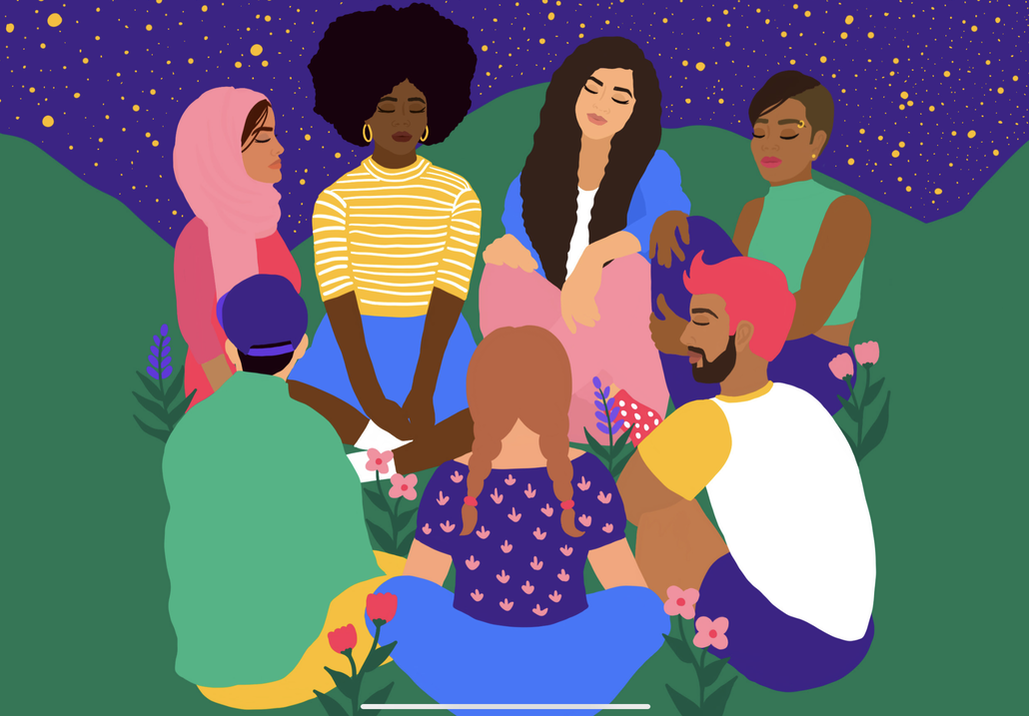|
Shelley Butler, Beloved Community Communications Team It was unusually cold that last Saturday in January 2023 when the Parish Hall filled up with people attending “Change, Conflict, and Complexity: Antidotes and Spiritual Practices,” an antiracism training/workshop led by Alfonso Wenker of Team Dynamics. If you have never heard Alfonso, watch for the next opportunity, as he is informative and wise, and frankly, he could read the phone book and make it sound compelling. As I looked around the room of eighty or so, I was impressed with the number of people whom I did not know or had never seen at a Team Dynamics event before, a sign of widening interest in antiracist multiculturalism at Unity Church? Also attending were many people I knew who typically attend these events, a sign of unwavering commitment to this work. There was energy in the room! The workshop focused on three parts: 1) comfort and certainty, 2) antidotes to white supremacy, and 3) archetypes in conflict. After each part, small groups met to discuss the ways in which we personally engaged with the topic. Complexity enters the equation as practice. Simply knowing the language, reading a book, or listening to a lecture on antiracism is not the same as practicing antiracism. There isn’t a set of instructions for social justice work, and neither is it finite. As much as we might want someone to just tell us what to do to fix the “oops” (the way that white supremacy treats racism), this work requires moving into practices that serve social/racial justice. These practices include less certainty and more questions, less focus on comfort and more on being present to the moment, less blame and more listening. Alfonso reminded us, “Discomfort is at the root of all growth and learning.” Our paired and small group discussions were exercises in discomfort as we were asked not only to examine our own behaviors and intentions but to share them. What is my relationship to certainty? What choices have I made to maintain my own comfort? In my racial justice work, when do I notice a pull to be right? What practices would I like to incorporate/give attention to in my spiritual and social justice work? What do I want to shed or release in my work? Uncharacteristically, I chose to join a small group of people that I did not know very well or at all. But as typically happens at Unity, we opened up with each other, exposed vulnerabilities, and supported each other’s point of view, even when it was negative or we didn’t agree. I left each group the better for the conversation, the points of view, and the sense of connection in community. Recognizing ourselves in the “Characteristics of White Supremacy” is typically a lesson in humility–we learn here the conscious and unconscious things we do that support white supremacy. But the lesson didn’t stop there. Carolyn Caswell remarked, “I really appreciated continuing the discussion about racial injustice and white supremacy, and this is the first time I’ve seen answers or solutions or antidotes to white supremacy.” Unity Trustee Mary Hernandez said, “What stuck out to me was the invitation to greet white supremacy where it shows up with antidotes. And to really work to reflect on those and try to weave them into the way that I walk in the world.” The third and last section of the program helped us understand the nature of conflict, and how to practice trusting, healthy conflict. Conflict is not necessarily bad and does not mean that something is broken. We were encouraged to think of conflict as “us against the problem,” instead of “us against them.” Come to a conflict with the understanding of shared purpose or interdependency, rather than believing there is only one solution or that your way is the right way. Be ready to listen to how others perceive the issue and explore possible solutions. These are more generative conflict practices. Kim Chapman offered this thoughtful reflection on the morning:
Notes:
Image Credit: From the cover of Turning Towards Each Other Workbook by Jovida Ross and Weyam Ghadbian; Illustration & Graphic Design by Shirien Damra.
0 Comments
Leave a Reply. |
Topics
All
Beloved Community ResourcesUnity Justice Database
Team Dynamics House of Intersectionality Anti-Racism Resources in the Unity Libraries Collection Creative Writers of Color in Unity Libraries The History of Race Relations and Unity Church, 1850-2005 Archives
July 2024
Beloved Community Staff TeamThe Beloved Community Staff Team (BCST) strengthens and coordinates Unity’s antiracism and multicultural work, and provides opportunities for congregants and the church to grow into greater intercultural competency. We help the congregation ground itself in the understanding of antiracism and multiculturalism as a core part of faith formation. We support Unity’s efforts to expand our collective capacity to imagine and build the Beloved Community. Here, we share the stories of this journey — the struggles, the questions, and the collaborations — both at Unity and in the wider world.
The current members of the Beloved Community Staff Team include Rev. Kathleen Rolenz, Rev. KP Hong, Rev. Lara Cowtan, Drew Danielson, Laura Park, Lia Rivamonte and Angela Wilcox. |
